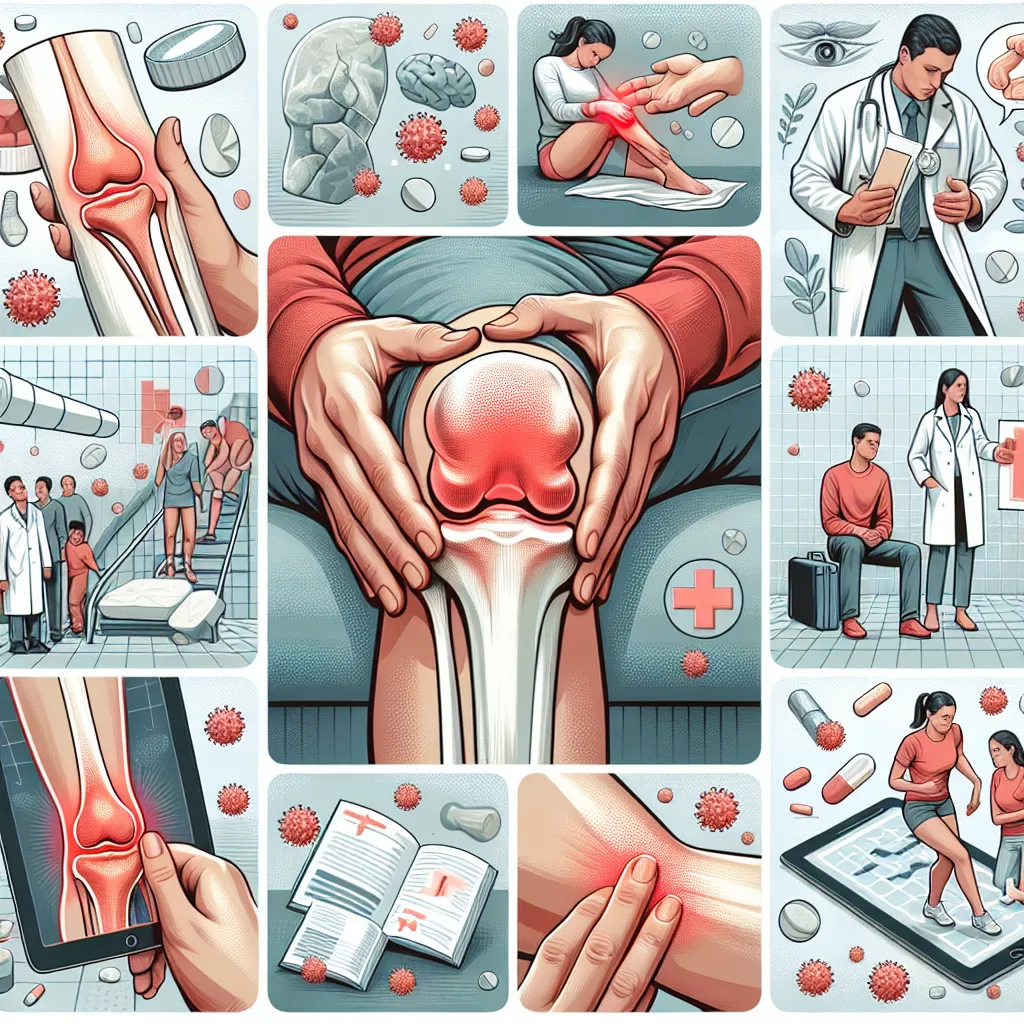Psoriatic Arthritis Knee Pain: Causes, Symptoms, and Treatment
Psoriatic Arthritis Knee Pain: Causes, Symptoms, and Treatment
Psoriatic arthritis is a chronic autoimmune condition that affects both the skin and joints. One of the common manifestations of psoriatic arthritis is knee pain. In this article, we will explore the causes, symptoms, and treatment options for psoriatic arthritis knee pain.
Understanding Psoriatic Arthritis
Psoriatic arthritis is a type of inflammatory arthritis that affects individuals with psoriasis, a chronic skin condition characterized by red patches of skin covered with silvery scales. While psoriasis primarily affects the skin, psoriatic arthritis can cause inflammation in the joints, leading to pain, stiffness, and swelling.

Psoriatic arthritis can develop at any age, but it usually appears between the ages of 30 and 50. The exact cause of psoriatic arthritis is unknown, but it is believed to be a combination of genetic, immune system, and environmental factors.
Causes of Psoriatic Arthritis Knee Pain
Knee pain in psoriatic arthritis can be attributed to several factors:
-
Inflammation:
Psoriatic arthritis causes inflammation in the joints, including the knees. This inflammation can lead to pain and swelling. -
Cartilage and Bone Damage:
Over time, the inflammation in the knee joint can cause damage to the cartilage and bones, further contributing to knee pain. -
Enthesitis:
Enthesitis is the inflammation of the entheses, which are the areas where tendons or ligaments attach to the bone. Psoriatic arthritis can cause enthesitis in the knee, leading to pain around the joint. -
Synovitis:
Synovitis is the inflammation of the synovium, which is the lining of the joint. Psoriatic arthritis can cause synovitis in the knee, resulting in pain and swelling.
Symptoms of Psoriatic Arthritis Knee Pain
Psoriatic arthritis knee pain can manifest in various ways. The most common symptoms include:
-
Pain:
Individuals with psoriatic arthritis often experience pain in the knee joints. The pain can range from mild to severe and may worsen with movement. -
Stiffness:
Stiffness in the knee joint, especially in the morning or after prolonged periods of inactivity, is another common symptom of psoriatic arthritis. -
Swelling:
The knee joint may become swollen due to inflammation caused by psoriatic arthritis. -
Redness and Warmth:
In some cases, the affected knee may appear red and feel warm to the touch. -
Difficulty Walking:
Severe knee pain and stiffness can make it challenging to walk or bear weight on the affected leg. -
Limited Range of Motion:
Psoriatic arthritis can restrict the range of motion in the knee, making it difficult to bend or straighten the leg fully.
Treatment Options for Psoriatic Arthritis Knee Pain
Although there is no cure for psoriatic arthritis, various treatment options can help manage knee pain and improve quality of life. The choice of treatment depends on the severity of symptoms and individual factors. Here are some common treatment approaches:
-
Nonsteroidal Anti-inflammatory Drugs (NSAIDs):
NSAIDs, such as ibuprofen and naproxen, can help reduce pain and inflammation in the knee joint. They are available over-the-counter or by prescription. -
Disease-Modifying Antirheumatic Drugs (DMARDs):
DMARDs, such as methotrexate and sulfasalazine, can slow down the progression of psoriatic arthritis and alleviate knee pain. These medications require a prescription and close monitoring by a healthcare professional. -
Biologic Response Modifiers:
Biologics, such as tumor necrosis factor (TNF) inhibitors and interleukin-17A (IL-17A) inhibitors, target specific components of the immune system to reduce inflammation and manage symptoms. These medications are typically administered by injection or infusion and require a prescription. -
Corticosteroids:
Corticosteroid injections directly into the knee joint can provide short-term relief from severe pain and inflammation. However, their long-term use is generally avoided due to potential side effects. -
Physical Therapy:
Physical therapy can help improve knee joint function, strengthen surrounding muscles, and reduce pain. A physical therapist can create a personalized exercise program tailored to the individual’s needs. -
Lifestyle Modifications:
Adopting a healthy lifestyle, including regular exercise, maintaining a healthy weight, and avoiding triggers that worsen symptoms, can help manage psoriatic arthritis knee pain.
Conclusion
Psoriatic arthritis knee pain can significantly impact an individual’s daily life. Understanding the causes, recognizing the symptoms, and seeking appropriate treatment are crucial for managing the condition effectively. With the help of healthcare professionals and a comprehensive treatment plan, individuals with psoriatic arthritis can find relief from knee pain and improve their overall quality of life.
